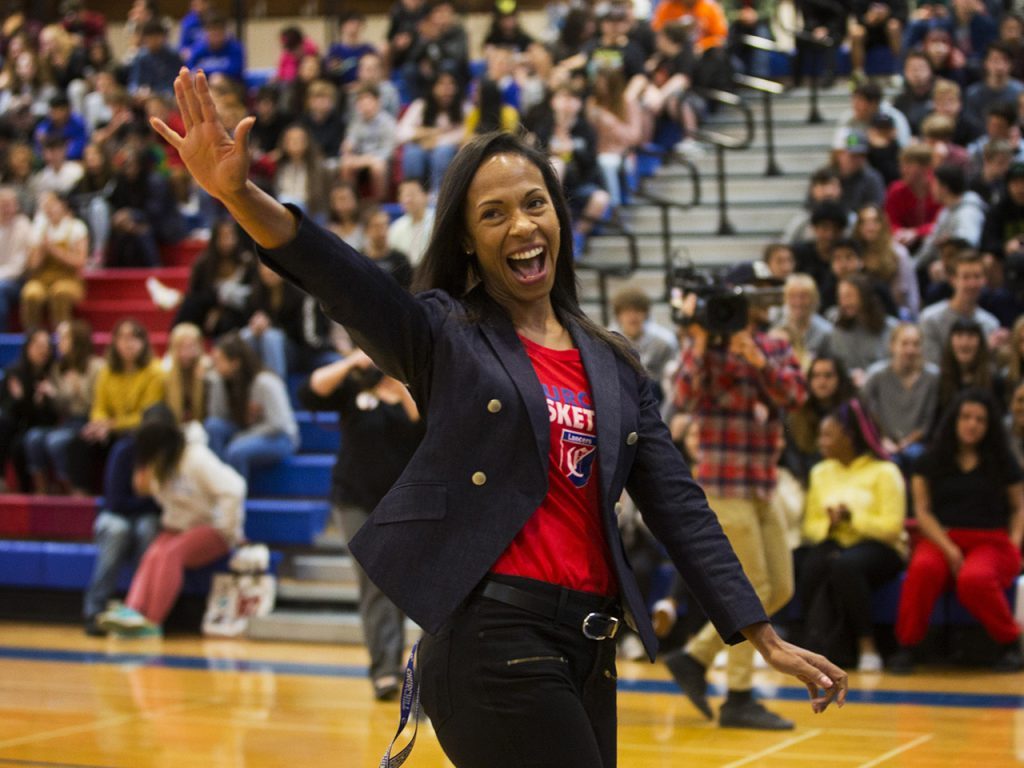
So often a common thread emerges amongst teachers: I didn’t know I wanted to teach until it was right in front of me. Of course, this is not always the case. Some people know from middle school (or even earlier) that their careers and lives will be bound to teaching in some respect or another. Others, like 2019 Oregon Teacher of the Year recipient Keri Pilgrim-Ricker, discover their profession through a passion and a need to inspire that passion in others.
So often a common thread emerges amongst teachers: I didn’t know I wanted to teach until it was right in front of me. Of course, this is not always the case. Some people know from middle school (or even earlier) that their careers and lives will be bound to teaching in some respect or another. Others, like 2019 Oregon Teacher of the Year recipient Keri Pilgrim-Ricker, discover their profession through a passion and a need to inspire that passion in others.
“I fell in love with ecology,” she says of her time as an undergraduate, “It’s research and inquiry driven and it’s always asking questions about how things interact.” She wanted to be immersed in science, she wanted to ask the questions, yet she didn’t want to constrain her focus – and that is when she found teaching.
“Teaching,” Pilgrim-Ricker says, “has filled that niche for me, in that there is still this crazy intersectionality of variables, but the variables are now [my] students and their lives and their contexts.”
In pursuing her passion, in acquiring knowledge and experience, and finally in utilizing this expertise and turning it into curriculum, Pilgrim-Ricker never feels limited. “I still get to tell rich stories about science and I still get to be able to use inquiry skills to be able to figure out how to best serve my students.”
Now, as Oregon Teacher of the Year, she perceives her challenges in a new light, a bigger and even brighter light. Pilgrim-Ricker says of her honor, “I quickly realized that this award isn’t really so much an award but a position, and it’s been phenomenally eye-opening to be able to connect with other state educators of the year, to create this cohort, to be able to explore the difference in education systems and policies from state-to-state.” This was her chance to not only be inspired but also to inspire, this time on a whole new level. She sees the award as an opportunity to use her skills and influence to change the way we look at education and how we support students.
“I think education is a way of empowering voice. Not only does it inform how you say and what you say, but you have this unique ability as an educator to bring forward confidence in your students to help them see themselves as problem solvers and to conquer complex tasks and challenging moments in their lives.”
Pilgrim-Ricker received her undergraduate degrees in biology and animal science from Fresno State, she went on to Perdue to obtain her masters. After graduating and trying to figure out her next step, she started to realize the importance and excitement of not only her own education but of educating future generations. A friend suggested she look into the Masters in Science Education program at Oregon State. “I drove out to Corvallis,” she says, “everybody was friendly and it was amazing and you could walk and bike everywhere.” Suddenly, everything fit together – the program, the school, the space. For Pilgrim-Ricker, Oregon State fit like a snug pair of rain boots.
“If you are going to become an educator, especially a content area specialist, go learn educational pedagogy in a place that really knows your content because it really frames your context.” Oregon State boasts of a College of Education, whose innovative programs and distinguished faculty are celebrated nation-wide. Combining that with the College of Science, a highly respected and cutting-edge school which draws researchers and students from around the globe, this is a university worth choosing, particularly when anticipating a career in content specialization.
Pilgrim-Ricker has remained in Oregon, currently a Career and Technical Education occupations health teacher at Churchill High School in Eugene. In this position, she uses her Master’s in Science Education to lead her students through an inventive and groundbreaking curriculum in the fields of anatomy and physiology. Still this isn’t enough. Pilgrim-Ricker knows that success, true success, is a network of teamwork.
“We need to create environments for [teachers] that are as rich and collaborative and supportive as we create for our kids” she urges. “We deserve that. We need that to be sustained. And our kids will give some of that back in return, but you need passionate adults who will hold space with you, who will be there to recognize when you are having a hard day and empathize.”
Keri Pilgrim-Ricker’s methods are unique and demanding, they make the student become an active partner in their education. They make teachers push themselves and challenges norms. As she says, “Curriculum is constant. Standards are constants. The only thing that is dynamic in education is you.”
A school is so much more than a building, it’s a space, it’s a body of students but it’s also a body of teachers. Be involved. Be engaged. Be there for each other.
Follow Pilgrim-Ricker on twitter: @keriotoy19
By Jenna Patten, Writing Student Employee, College of Education










